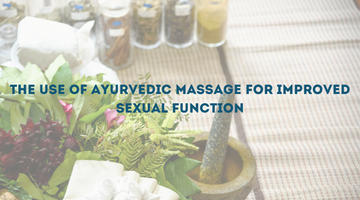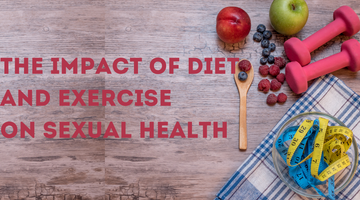HEALING THE PROSTATE NATURALLY: AYURVEDIC REMEDIES FOR PROSTATE HEALTH
by Harsh Shah on Feb 10, 2023

The prostate is a small, but vital, gland located in the male reproductive system. Its primary function is to produce fluid that nourishes and protects sperm during ejaculation. However, as men age, the prostate can become enlarged, which can lead to a variety of health issues, including difficulty urinating, increased frequency of urination, and even prostate cancer.
Conventional medicine often relies on surgery and pharmaceuticals to address prostate issues, but Ayurveda, an ancient Indian system of medicine, offers natural remedies for prostate health.
One of the key principles of Ayurveda is the concept of balance. In order to maintain prostate health, it is important to balance the body's three doshas, or constitutional energies, which are Vata, Pitta, and Kapha. Imbalances in these doshas can lead to a variety of prostate issues, including enlargement and inflammation.
A key aspect of achieving balance in the doshas is through diet and lifestyle changes. Ayurveda recommends a diet that is rich in whole, unprocessed foods, such as fruits, vegetables, nuts, and seeds. Spices such as ginger, Ashwagandha, and Shatavari are also beneficial for prostate health. Consuming foods that are high in fat, sugar, and processed ingredients should be avoided. Ayurveda also recommends avoiding excessive consumption of red meat, alcohol, and caffeine.
Herbs are also commonly used in Ayurveda to address prostate issues. Some commonly used herbs include saw palmetto, stinging nettle root, and pygeum africanum. These herbs have been traditionally used to reduce inflammation, improve urine flow, and reduce the size of the prostate.
Another Ayurvedic remedy for prostate health is the practice of “Basti”, which is a form of an herbal enema. This treatment helps to remove toxins and inflammation from the prostate, and can also help to improve urine flow.
In addition to diet and herbal remedies, Ayurveda also recommends certain practices for optimal prostate health such as regular exercise, yoga, and pranayama, which can help to improve blood flow and promote the healthy functioning of the reproductive system.
Another important aspect of Ayurveda is the practice of stress management, which can have a significant impact on prostate health. Stress can cause an imbalance in the doshas, leading to inflammation and other issues. Ayurveda recommends practices such as meditation and yoga to help reduce stress and promote relaxation.
In conclusion, Ayurveda offers a holistic approach to maintaining prostate health through a balance of diet, lifestyle, and herbal remedies. By following these principles, men can improve their prostate health, reduce inflammation and promote healthy functioning of the prostate. However, it is always recommended to consult with an Ayurvedic practitioner or health professional before making any changes in diet and lifestyle or taking any herbs. Furthermore, it is also important to note that Ayurveda should not be used as a substitute for conventional medical treatment, and men should always consult with their doctor if they have any concerns about their prostate health.





I was diagnosed with Hepatitis B . For over two years, I relied on antiviral medication and routine monitoring, but unfortunately, my symptoms and liver-related concerns continued to worry me. My energy levels dropped, and I often felt unwell and anxious about my health.
Last year, hoping for additional support, I decided to try a herbal treatment program from NaturePath Herbal Clinic. Honestly, I was skeptical at first, but within a few months, I began to feel some changes. My fatigue lessened, my digestion felt better, and overall I felt more balanced and healthier. I also regained much of my energy and confidence. It’s been a meaningful experience, and I feel more like myself again.If you or a loved one is dealing with Hepatitis B, you might consider exploring complementary approaches that feel right for you. This was simply my personal experience. You can visit their website or contact them at www.naturepathherbalclinic.com , info@naturepathherbalclinic.com
I stumbled across a comment while scouring the internet. I am suffering from erectile dysfunction, which was the same situation i found on the post , i ordered mine and same with me today am cured ,if you also need his assistance , You meant go through his website: https://bubaherbalmiraclem.wixsite.com/website Or reach via mail: buba.herbalmiraclemedicine@gmail.com or his Facebook Page ;https://www.facebook.com/profile.php?id=61559577240930 . AND THANK ME LATER
Thank you for providing such a comprehensive and practical guide. Your blog has become a valuable resource for me, and I’m sure it will help many others on their journey to better manage High cholesterol. Looking forward to more insightful content from you.
I stumbled upon this skin allergy blog while frantically searching for some solace in the vast web of skincare khujli ka ilaj.advice. And let me tell you, reading your stories has been both comforting and eye-opening.
Thank you for providing such a comprehensive and practical guide. Your blog has become a valuable resource for me, and I’m sure it will help many others on their journey to better manage High cholesterol. Looking forward to more insightful content from you.